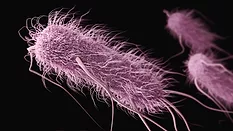
Microbiological
Microbiological testing seeks to identify the presence of bacterial pathogens, viruses, and parasites on food contact surfaces, in agricultural water and soil, and in food products. Frequent swabbing to determine if pathogens are present on food processing equipment is an important part of a sound environmental monitoring program (EMP) at a facility.
Articles
More ArticlesPodcasts
More PodcastsNever miss the latest news and trends driving the food safety industry
eNewsletter | Website | eMagazine
JOIN TODAY!Copyright ©2025. All Rights Reserved BNP Media.
Design, CMS, Hosting & Web Development :: ePublishing



